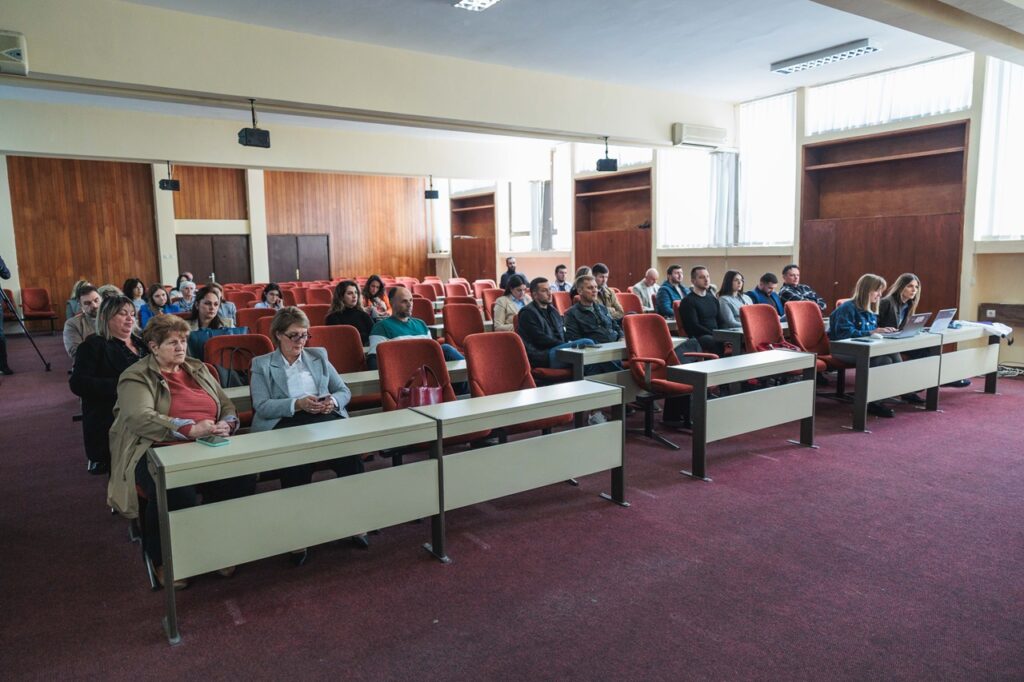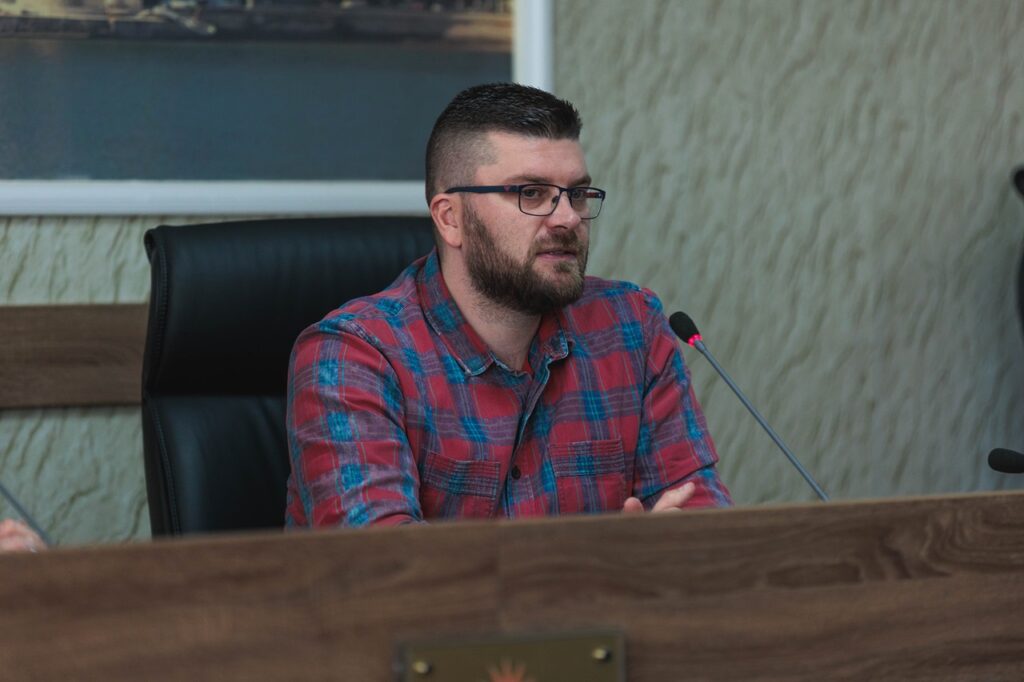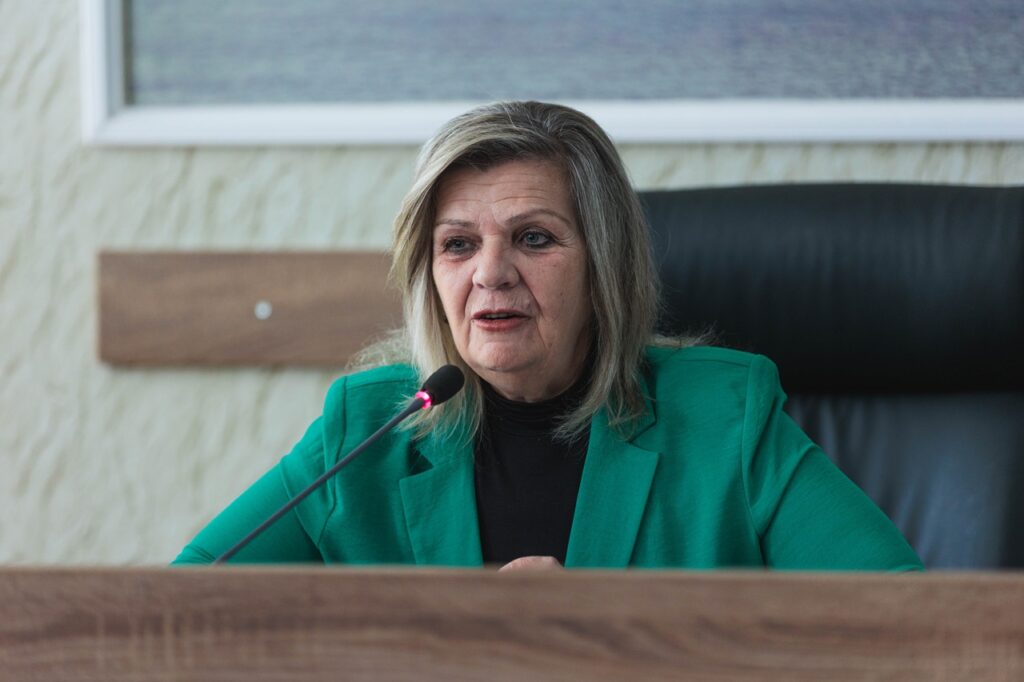“Unity is best preserved by respecting and supporting diversity,” was the message conveyed today at a panel discussion on interculturalism organized by the Center for Civic Education (CCE) in Ulcinj, at the premises of the Ulcinj Municipality Assembly.
“Communication among different cultures is a privilege, the best opportunity to explore the metropolis of the mind and always exciting discovery of the new – for oneself and for others,” said Bećir Selaj, Vice President of the Ulcinj Municipality, during the opening of the panel. He emphasized that every culture exists primarily as an interculture because, by its nature, it unites people. “For this reason, thanks to millennia of existence and mutual interconnectedness, based on these stable foundations, Ulcinj enjoys the fruits of all cultures, civilizations, and religions that have come to our region, accepting from each what is useful and beautiful,” he stressed.
Boban Batrićević, historian and professor at the Faculty of Montenegrin Language and Literature, believes that the consequences of political events have resulted that Montenegro never having had an original ideological awareness of how necessary it is to embrace diversity. “If we look at the Balkan region, Montenegro is a rare place that has not been marked by crimes of the magnitude associated with a much wider area. And that is the capital to which we should return and the key to survival,” said Batrićević. He addressed the quality of education, stating that it is a complex area even in much more developed societies. “The problem of education is evident. Not because we have bad textbooks. We had extremely bad textbooks even in times that some generations now speak of as a good period, because the history of minorities was not represented. There was a promotion of historical facts not related to the Montenegrin territory, mostly promoting Serbia. Through that, awareness was introduced about which space Montenegro should belong to, but also negative stereotypes were perpetuated towards Muslims, Catholics to a lesser extent, and ethnically towards Albanians and Bosniaks,” he said. He emphasized the importance of education in multi-ethnic environments. “Religions are inherently good if you have good religious teachers because faith teaches you to love what is different, other… However, sometimes promoters of religion themselves can be aggressive, which is often the case in Montenegro. When it comes to ethnic identification, it is a bigger problem in our area because this area knew coexistence before the development of nations. The disturbance arises when religions began to be identified with ethnic identity,” assessed Batrićević.
Hatixhe Gjoni, activist and politician, emphasized that Ulcinj is a multi-ethnic, harmonious, and tolerant community. “This is a place whose ancestors, coming from all travels as sailors, brought something different, incorporated it into history, and that is why we have a mosaic of the crossing of numerous civilizations, those who knew what communal life was, multi-ethnicity when it was not talked about in the way we are trying to revive those values today, and a place where both languages were used,” she explained. “I hope we will rise above all the challenges and difficulties that lie ahead because rarely any place like Ulcinj can boast the greatest heritage: we do not remember genocides, mass graves, Srebrenica and Kaluđerski Laz, nor many other places whose histories testify to something we have all resisted here because for the positive sides of history, everyone must participate in them together,” said Gjoni. She believes that the tragedy of this time is the extinction of true values, as material has prevailed over ideological and character values. “I hope we will return to values and preserve them as the greatest treasure,” said Gjoni.
The aim of the interculturalism panels, previously held in Rožaje and Cetinje, is to raise public awareness, especially of local communities, about the value and significance of participating in the affirmation of interculturalism as a framework that contributes to the realization of the rights of minority nations and other minority national communities.
The panel was organized as part of the project “Bridges of Multiculturalism through Museum Education” supported by the Ministry of Human and Minority Rights.
Maja Marinović, Programme Associate



